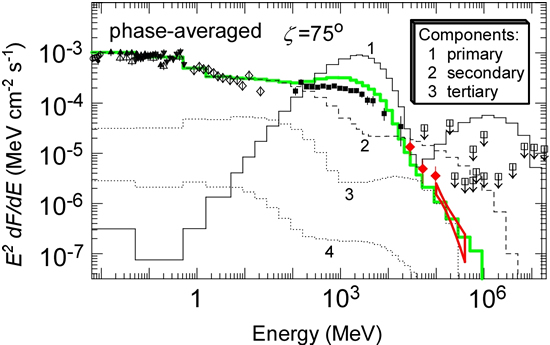Pulsed Gamma-Ray Emission from the Crab Pulsar

Figure 15 of "Observations of the Crab pulsar above 25 GeV with the MAGIC I telescope", Aleksic et al. ApJ 742, 43 (2011)
One of the brightest pulsars, the Crab pulsar, has been observed extensively for more than 40 years in a wide frequency range. Among them, an exciting finding was recently made by the MAGIC collaboration, which reported the detection of pulsed signals above 25 GeV (three red diamonds, this work). The thin, black solid line represents the flux of the photons emitted by the primary positrons accelerated in the particle accelerator, while the thin, black dashed one by the secondary pairs created outside the accelerator. The thick green solid line (this work) includes magnetospheric absorption and subsequent reprocesses, and hence represents the flux to be observed. The filled circles (LECS), open circles (MECS), filled triangles (PDS) denote the Boppo SAX observations, while the open triangles the Gamma-ray Imaging Spectrometer (GRIS). The Fermi observations are denoted by filled squares, and the VERITAS observations by the bowtie.